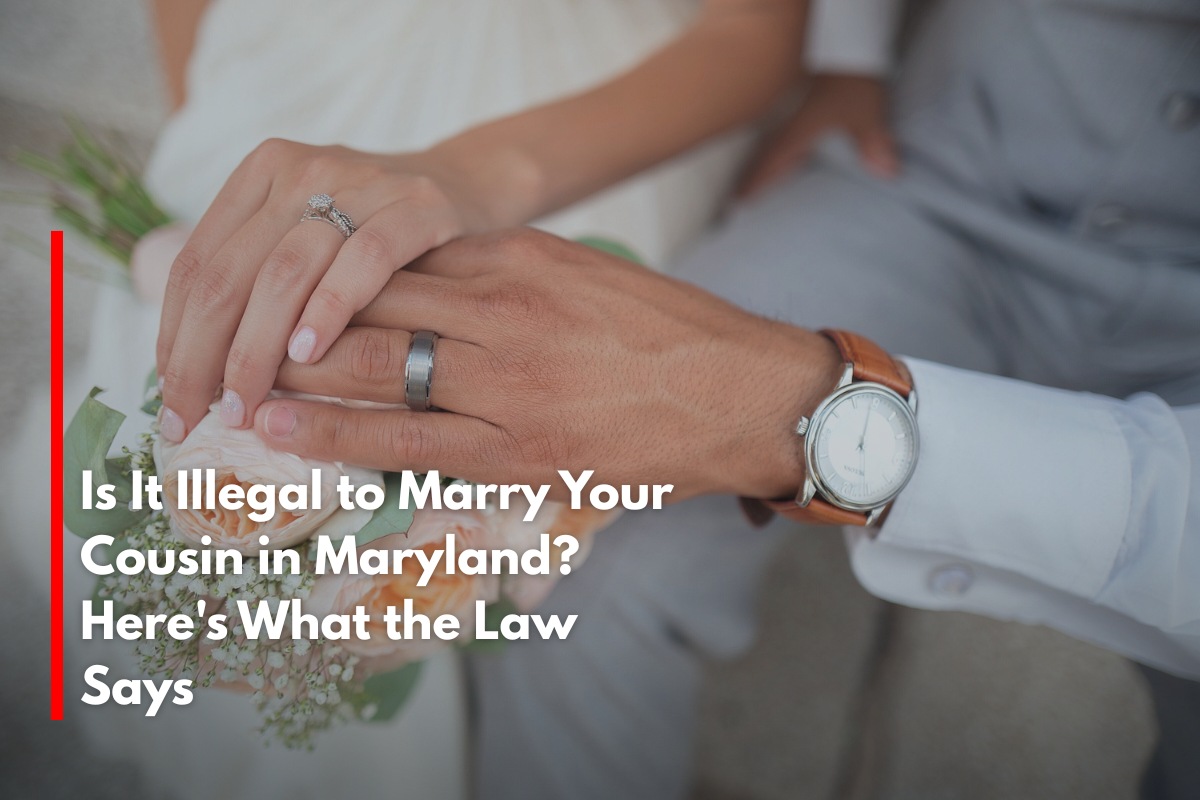Marriage laws can vary widely across states, especially when it comes to marrying relatives like cousins. In Maryland, the specific legal stance on cousin marriage reflects a mix of tradition, public policy, and health considerations. Here’s a detailed look at what Maryland law says about marrying your cousin.
Cousin Marriage in Maryland: Legal Status
In Maryland, it is legal to marry your first cousin. Maryland is one of the 19 states in the U.S. where first-cousin marriage is explicitly allowed. This sets Maryland apart from states like West Virginia or Pennsylvania, where cousin marriage is prohibited. The law does not ban unions between cousins, making Maryland a possible choice for couples seeking to marry despite such familial ties elsewhere.
Marriage Laws Regarding Other Family Members
While cousin marriage is permitted, Maryland law strictly prohibits marriage between very close relatives. Marriages are not allowed between individuals who are:
Parent and child
Grandparent and grandchild
Siblings (including half-siblings)
Aunt/uncle and niece/nephew
Certain in-law relationships, such as stepparents and stepchildren
Violating these prohibitions can result in penalties, including fines or other legal consequences. However, marrying a cousin falls outside these restrictions and is thus legal.
Practical Aspects and Social Context
Although legal, cousin marriage is not particularly common in Maryland. According to local court clerks, marriage licenses between cousins happen occasionally but are relatively rare—perhaps once a year in certain counties. Some couples even travel from other states where cousin marriage is banned to Maryland to legally wed.
People applying for marriage licenses in Maryland are asked if they are related to ensure compliance with prohibitions on close family marriages. However, the relationship between cousins is generally not viewed as problematic by Maryland law.
Genetic Counseling and Health Considerations
Unlike some states that require genetic counseling or place age restrictions on cousin marriages, Maryland imposes no such conditions. Couples have no legal obligation to undergo counseling or fulfill medical criteria before marrying as cousins in the state.
Overview of Cousin Marriage Across the U.S.
Maryland belongs to a group of states including California, Florida, Georgia, New York, and others where cousin marriage is allowed without major restrictions. In contrast, 31 states prohibit first cousin marriages either broadly or under specific conditions.
Summary
Marrying a first cousin in Maryland is legal.
Relationships closer than cousins are prohibited from marrying by law.
Genetic counseling or age restrictions for cousin marriages are not required.
The occurrence of cousin marriages is relatively rare but legally recognized.
Maryland’s legal stance attracts some out-of-state cousin couples for marriage.
Despite the taboo that may exist socially in some circles, Maryland law clearly permits cousin marriage, balancing legal rights and family privacy. Those considering such unions should consult county clerks or legal experts about licensing but can be assured that cousin marriages are lawful under Maryland statutes.
This legal allowance places Maryland among a handful of U.S. states where cousin marriages are accepted, reflecting diverse marriage laws and cultural acceptance across America.
Sources
(https://cnsmaryland.org/1999/12/03/marylands-lax-marriage-law-lures-kissing-cousins-looking-to-go-legit/)
(https://en.wikipedia.org/wiki/Cousin_marriage_law_in_the_United_States)
(https://www.peoples-law.org/who-may-marry-maryland)
(https://en.wikipedia.org/wiki/Cousin_marriage)
(https://theamm.org/articles/1927-kissing-cousins-the-popularity-controversy-of-cousin-marriage)











